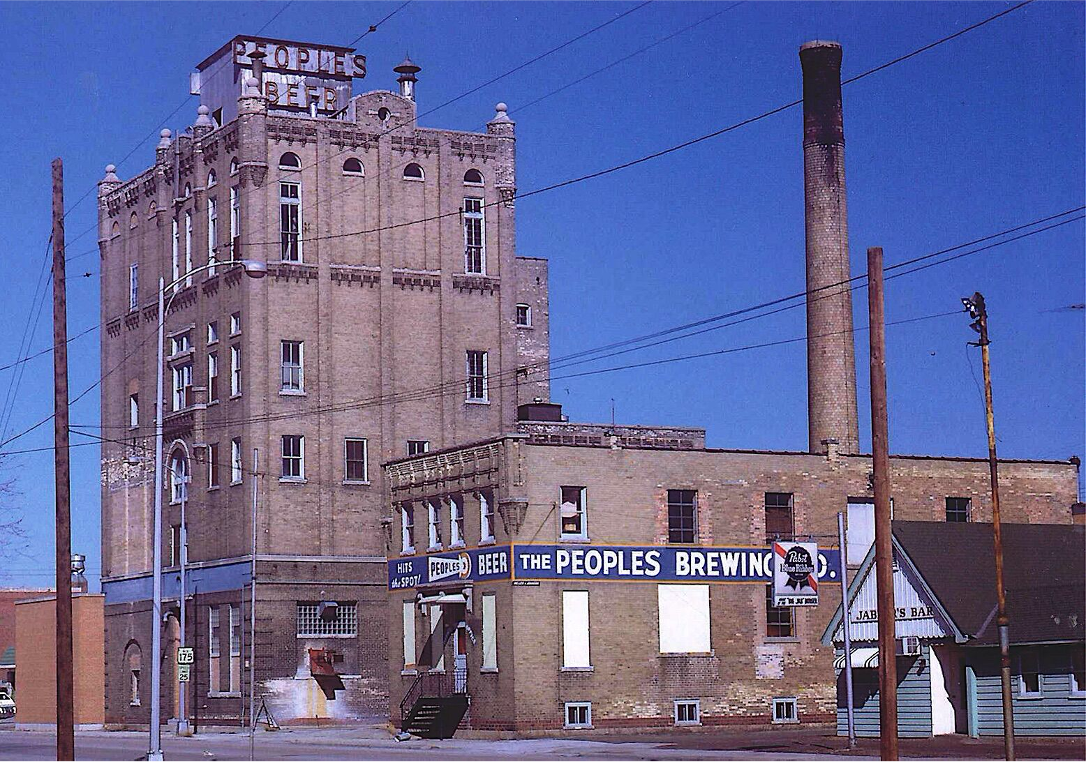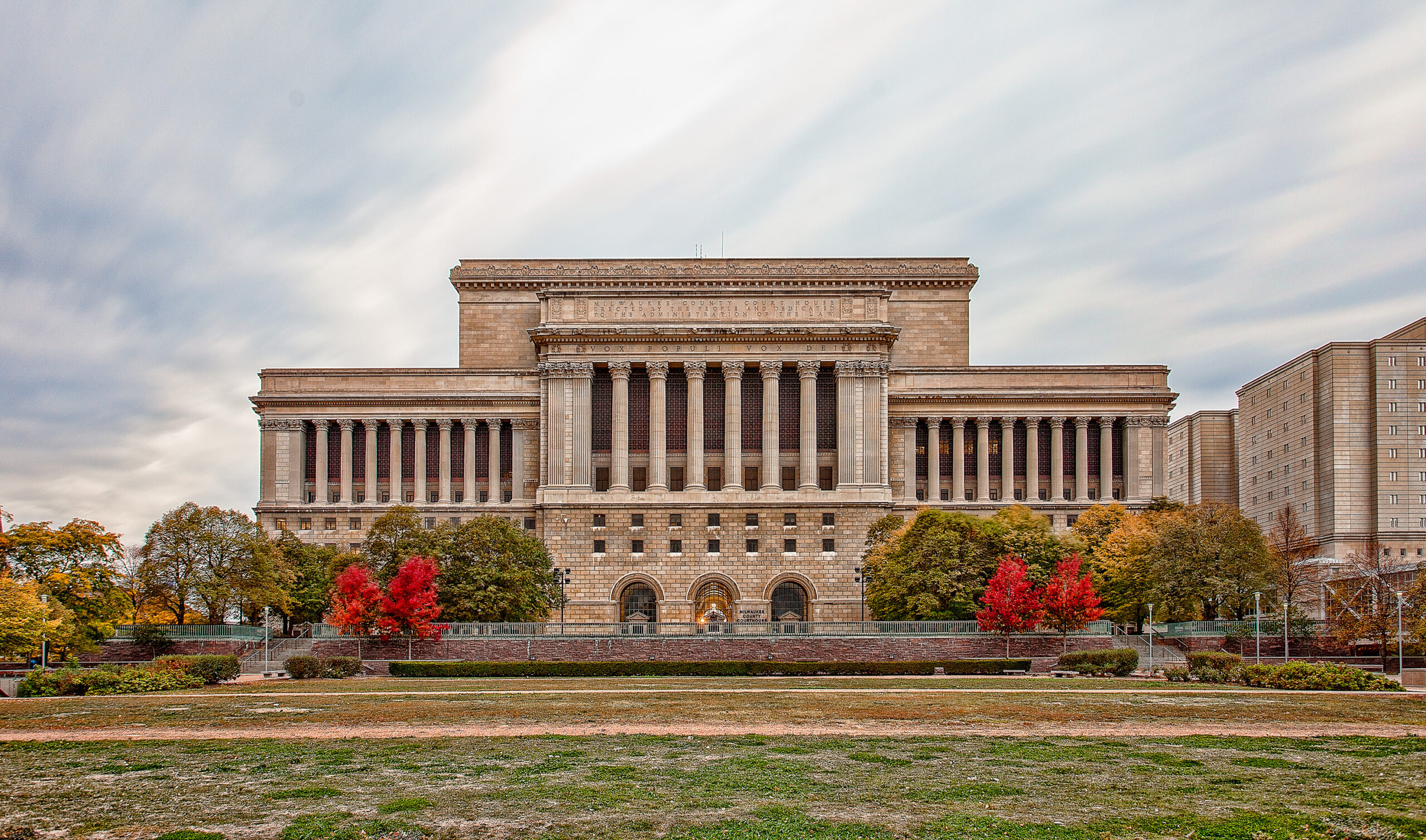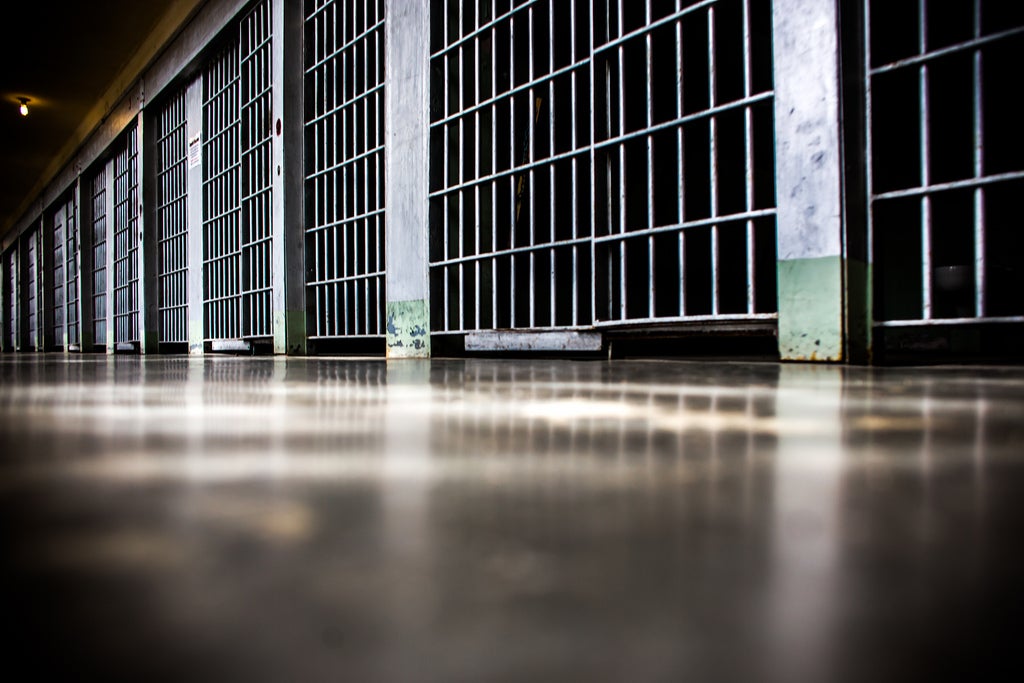In 1970, a group of Black business owners from Milwaukee purchased Peoples Brewing in Oshkosh, making it Wisconsin’s first — and only — Black-owned brewing company in the state’s history.
The group, led by Theodore “Ted” Mack, called United Black Enterprises, hoped to establish a brewery for their community.
For Mack, the idea stemmed from the notion that the Black community should run the businesses of the services and products they consumed. So United Black Enterprises, or UBE, tried to acquire Blatz, an iconic Milwaukee beer brand. When the acquisition failed, the group set their sights on Peoples instead.
Stay informed on the latest news
Sign up for WPR’s email newsletter.
At the time, Oshkosh was a small, majority-white town with only 103 Black residents. And before UBE bought the brewery, Peoples Brewing was opened in 1913 by a group of bar owners who wanted to make and sell their own beer to compete against the Oshkosh Brewing Co. monopoly across the street.
Beer historian John Harry describes Peoples — a common shorthand for the brewery — as less of a story about beer and more of a story about community engagement and capitalism. Though Craig Crosby, son of the late Henry Crosby, one of the co-owners of Peoples, said the brewery itself was popular.
“The beer was very well known and liked in the area,” Craig Crosby said.
Craig, who was about 7 or 8 years old when his dad took ownership of Peoples Brewing, still remembers visiting the brewery for the first time. It wasn’t massive, he said, but as a kid he thought it was “ginormous.”
“It was like walking into the Fiserv Forum,” he joked.
[[{“fid”:”1524966″,”view_mode”:”full_width”,”fields”:{“format”:”full_width”,”alignment”:””,”field_image_caption[und][0][value]”:”%3Cp%3E%3Cem%3EPhoto%20courtesy%20of%20John%20Harry%3C%2Fem%3E%3C%2Fp%3E%0A”,”field_image_caption[und][0][format]”:”full_html”,”field_file_image_alt_text[und][0][value]”:”An advertisement for Peoples Brewing”,”field_file_image_title_text[und][0][value]”:”An advertisement for Peoples Brewing”},”type”:”media”,”field_deltas”:{“1”:{“format”:”full_width”,”alignment”:””,”field_image_caption[und][0][value]”:”%3Cp%3E%3Cem%3EPhoto%20courtesy%20of%20John%20Harry%3C%2Fem%3E%3C%2Fp%3E%0A”,”field_image_caption[und][0][format]”:”full_html”,”field_file_image_alt_text[und][0][value]”:”An advertisement for Peoples Brewing”,”field_file_image_title_text[und][0][value]”:”An advertisement for Peoples Brewing”}},”link_text”:false,”attributes”:{“alt”:”An advertisement for Peoples Brewing”,”title”:”An advertisement for Peoples Brewing”,”class”:”media-element file-full-width”,”data-delta”:”1″}}]]
‘Black Capitalism’
UBE’s purchase of Peoples Brewery coincided with a moment in history in which many Black Americans were looking to build wealth through entrepreneurship.
“At this point in the late-1960s there was this movement called ‘Black capitalism’ — and that’s not to say there wasn’t capitalism in existence in the Black community before that — but at this point it actually became a campaign pledge of (President) Richard Nixon, if you can believe that,” Harry said.
Not all Black Americans believed Nixon’s pledge, Harry said. Historically, Dr. Martin Luther Jr. opposed the premise of Black capitalism while Rev. Jesse Jackson Sr. embraced it, he said.
Harry said he believes Nixon’s Black capitalism agenda served as an opportunity to quell the sentiments lingering from the civil rights movement and make Black Americans and allies feel like the government had the interests of Black people in mind.
[[{“fid”:”1524956″,”view_mode”:”embed_portrait”,”fields”:{“format”:”embed_portrait”,”alignment”:”right”,”field_image_caption[und][0][value]”:”%3Cp%3ETed%20Mack%20at%20Peoples%20Brewing%20in%20Oshkosh%2C%20Wis.%26nbsp%3B%3Cem%3EPhoto%20courtesy%20of%20John%20Harry%3C%2Fem%3E%3C%2Fp%3E%0A”,”field_image_caption[und][0][format]”:”full_html”,”field_file_image_alt_text[und][0][value]”:”Ted Mack at Peoples Brewing in Oshkosh”,”field_file_image_title_text[und][0][value]”:”Ted Mack at Peoples Brewing in Oshkosh”},”type”:”media”,”field_deltas”:{“2”:{“format”:”embed_portrait”,”alignment”:”right”,”field_image_caption[und][0][value]”:”%3Cp%3ETed%20Mack%20at%20Peoples%20Brewing%20in%20Oshkosh%2C%20Wis.%26nbsp%3B%3Cem%3EPhoto%20courtesy%20of%20John%20Harry%3C%2Fem%3E%3C%2Fp%3E%0A”,”field_image_caption[und][0][format]”:”full_html”,”field_file_image_alt_text[und][0][value]”:”Ted Mack at Peoples Brewing in Oshkosh”,”field_file_image_title_text[und][0][value]”:”Ted Mack at Peoples Brewing in Oshkosh”}},”link_text”:false,”attributes”:{“alt”:”Ted Mack at Peoples Brewing in Oshkosh”,”title”:”Ted Mack at Peoples Brewing in Oshkosh”,”class”:”media-element file-embed-portrait media-wysiwyg-align-right”,”data-delta”:”2″}}]]For many, it was more about having access to better employment opportunities to advance their quality of life. Black leaders called for reduced barriers to economic participation which included more and better-paying jobs and opportunities to own businesses. Agencies like the federal Small Business Administration also opened loan programs to Black entrepreneurs for the first time — an agency UBE turned to when they bought Peoples Brewing.
For Craig’s father, being a businessman was second nature.
“The joke was later on that he probably knew 90 percent of all the Black people in the city of Milwaukee,” Craig recalled.
The Downfall Of Peoples Brewing
Peoples closed their doors after two years of operations.
Harry attributes the brewery’s closure to a number of challenges, including systemic racism, a lack of an advertising budget and not enough sales to expand distribution to other cities like Milwaukee where a higher number of Black residents lived.
The brewery also struggled to compete with larger brewers getting government contracts to supply beer to the military — a common practice at the time.
“How was Peoples, this small little regional brewery in northeast Wisconsin, going to compete with Miller and Budweiser,” Harry said, adding that “Ted Mack, Henry Crosby, and others thought they were going to get those contracts from the government because they had a (SBA) loan from the government. Therefore, the government is an invested stakeholder.”
But having an SBA loan wasn’t enough. There were a lot of hoops they would have to jump through to get the military’s contracts, Harry said. For example, the military only purchased beer in high demand.
“My dad was telling me they had trucks loaded with beer on their way to Gary, Indiana and local law enforcement were tipped off that they were coming,” Craig said. “Basically, they shut them down at the border saying if you cross the border, your beer will be confiscated.”
The action showed the extent to which larger breweries wanted to shut them down, he said.
“I truthfully believe that if they had gotten some of that contract, the brewery would still be in existence today,” Craig said.
Despite the brewery’s short existence under UBE’s ownership, both Harry and Craig hope to keep its history alive.
“It’s insurmountable hurdles that they had to get over, but knowing the people involved in it … well, if anybody could do it at that time, I’m pretty sure they had given it their best shot,” Craig said.
[[{“fid”:”1524961″,”view_mode”:”full_width”,”fields”:{“format”:”full_width”,”alignment”:””,”field_image_caption[und][0][value]”:”%3Cp%3ELeft%20to%20right%3A%20Peoples%20Brewing%20co-owners%20Henry%20Crosby%2C%20Ray%20Alexander%26nbsp%3Band%20Ted%20Mack%20with%20their%20lawyers.%26nbsp%3B%3Cem%3EPhoto%20courtesy%20of%20John%20Harry%3C%2Fem%3E%3C%2Fp%3E%0A”,”field_image_caption[und][0][format]”:”full_html”,”field_file_image_alt_text[und][0][value]”:”Henry Crosby, Ray Alexander and Ted Mack with their lawyers”,”field_file_image_title_text[und][0][value]”:”Henry Crosby, Ray Alexander and Ted Mack with their lawyers”},”type”:”media”,”field_deltas”:{“3”:{“format”:”full_width”,”alignment”:””,”field_image_caption[und][0][value]”:”%3Cp%3ELeft%20to%20right%3A%20Peoples%20Brewing%20co-owners%20Henry%20Crosby%2C%20Ray%20Alexander%26nbsp%3Band%20Ted%20Mack%20with%20their%20lawyers.%26nbsp%3B%3Cem%3EPhoto%20courtesy%20of%20John%20Harry%3C%2Fem%3E%3C%2Fp%3E%0A”,”field_image_caption[und][0][format]”:”full_html”,”field_file_image_alt_text[und][0][value]”:”Henry Crosby, Ray Alexander and Ted Mack with their lawyers”,”field_file_image_title_text[und][0][value]”:”Henry Crosby, Ray Alexander and Ted Mack with their lawyers”}},”link_text”:false,”attributes”:{“alt”:”Henry Crosby, Ray Alexander and Ted Mack with their lawyers”,”title”:”Henry Crosby, Ray Alexander and Ted Mack with their lawyers”,”class”:”media-element file-full-width”,”data-delta”:”3″}}]]
Wisconsin Public Radio, © Copyright 2025, Board of Regents of the University of Wisconsin System and Wisconsin Educational Communications Board.


